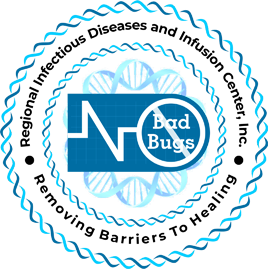
Empowering Patients: How Wound Care Specialists Promote Self-Care Strategies
In the field of wound care, patients play an essential part in their own healing process. Empowering patients to take an active role in self-care strategies can lead to improved outcomes and overall well-being. Wound care specialists with expert knowledge in managing various forms of wounds play a pivotal role in providing patients with guidance during their healing journey. We will explore the importance of self-care strategies in wound management and highlight the instrumental role of wound care specialists in empowering patients.
Wound Care Specialists: Guiding Patients towards Self-Care
Wound care specialists, also known as certified wound care professionals, are healthcare specialists with extensive expertise in evaluating, treating and managing wounds. Their expertise extends beyond wound dressing and encompasses a comprehensive understanding of wound healing phases, infection prevention, and lifestyle modifications for optimal healing.These specialists work directly with patients, equipping them with all of the knowledge and tools they require for active participation in their own care.
Self-Care Strategies for Wound Management:
- Wound Cleansing: Proper wound cleansing is vital for preventing infections and promoting healing. Wound care specialists educate patients on the appropriate techniques and solutions for cleaning wounds, emphasizing the importance of maintaining a sterile environment to minimize the risk of complications.
- Dressing Changes: Regular dressing changes are necessary to facilitate wound healing. Wound care specialists guide patients in understanding the frequency of dressing changes, the selection of appropriate dressings, and proper application techniques. By empowering patients to perform dressing changes, wound care specialists enable them to take ownership of their healing process.
- Recognizing Signs of Infection: Timely identification of signs of infection is crucial in wound management. Wound care specialists educate patients about the common indicators of infection, such as increased pain, redness, swelling, and discharge. By empowering patients to recognize these signs, they can seek immediate medical attention, thereby preventing further complications.
- Lifestyle Modifications: Certain lifestyle factors can impact wound healing. Wound care specialists educate patients about lifestyle modifications that can optimize healing, such as eating well and staying hydrated; quitting smoking; managing chronic conditions like diabetes; and engaging in appropriate physical activity.These modifications, when integrated into a patient’s daily routine, can significantly contribute to improved wound healing outcomes.
The Role of Theoretical Frameworks in Patient Education:
Patient education is at the core of wound care, it is important to provide patients with all of the skills and knowledge required for active participation in their healing processes. Patient-centered education aims to improve patient adherence, which refers to the extent to which patients follow healthcare providers’ recommendations. Wound care specialists utilize theoretical frameworks to enhance patient education and promote patient adherence. Some of these frameworks include:
- Health Belief Model (HBM): The HBM explores patient perceptions of health risks, benefits of recommended behaviors, and self-efficacy, which refers to a patient’s belief in their ability to enact provider recommendations.
- Theory of Planned Behavior (TPB): The TPB focuses on behavioral intentions, including attitudes toward provider recommendations and outcome expectations. It also considers self-efficacy as a determining factor in patient adherence.
- Social Cognitive Theory (SCT): SCT emphasizes the importance of self-efficacy and aims to build patients’ knowledge, skills, and abilities to assess and respond to changes in their condition.
- Transtheoretical Model of Behavior Change (TTM): The TTM describes patients’ readiness to engage in health behaviors and emphasizes the importance of tailoring interventions to individual patient needs.
By applying these frameworks, wound care specialists can effectively communicate with patients, address their concerns, and overcome barriers to quality wound care.
Empowering Patients for Better Outcomes:
By empowering patients with knowledge and skills, wound care specialists promote patient-centered care and enhance adherence to treatment plans. Patients who actively participate in their own healing process experience reduced episodes of care, decreased healthcare costs, and a better quality of life.
However empowerment in wound care goes beyond the physical aspects. It includes addressing emotional and psychological concerns, as wounds, particularly chronic ones, can significantly impact a patient’s mental well-being. Wound care specialists often work in multidisciplinary teams, collaborating with mental health professionals to provide holistic care, reinforcing the idea that the patients are not alone in their journey.
The role of a wound care specialist is not confined to providing direct treatment. Wound care specialists play a vital role in educating patients about wound management, enabling them to actively participate in their own care. Through wound cleansing, dressing changes, recognizing signs of infection, and lifestyle modifications, patients become empowered to take charge of their healing process, leading to improved quality of life and better overall outcomes.This approach fosters autonomy by giving patients confidence in themselves to actively take part in their care, build resilience, and ultimately enhance quality of life.Patient empowerment in wound care is indeed a powerful strategy, paving the way for optimal healing and recovery.
Seeking professional wound care services? Look no further than NoBadBugs. Our team of highly trained specialists provides personalized treatment plans for chronic wounds. With advanced techniques and cutting-edge modalities, we ensure individualized care for diabetic ulcers, pressure ulcers, and more. From comprehensive evaluations to innovative therapies, we offer a wide range of solutions. Trust NoBadBugs for expert wound care management. Contact us at +1 706-739-7789.
